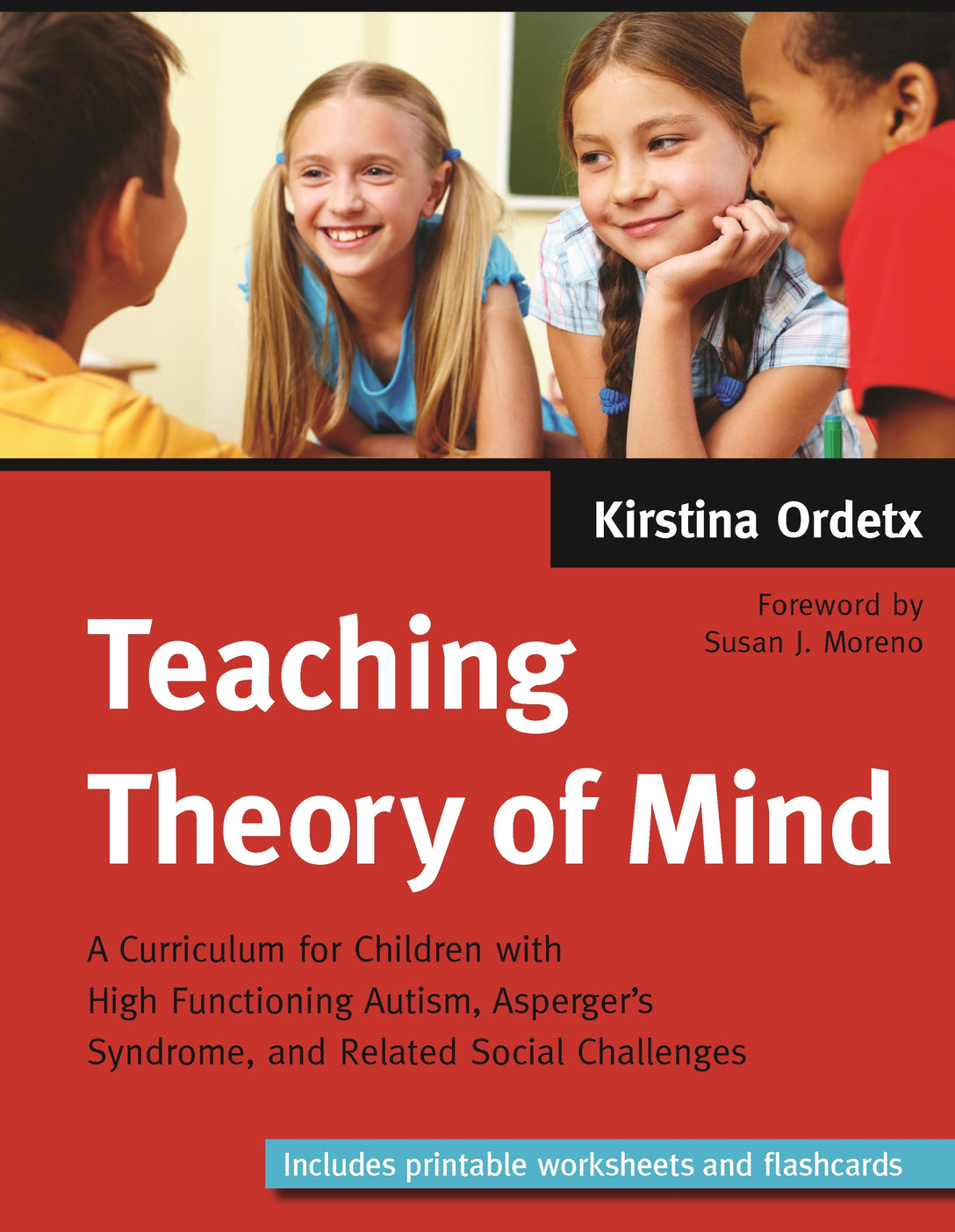
Press Reviews
Midwest Book Review
Provides teachers with an easy curriculum for teaching children with high functioning autism and Asperger's and focuses on interacting with others succesfully using Theory of Mind.
from the Foreword by Susan J. Moreno, President, Oasis MAAP Foundation
When I speak with classroom teachers around the world, many say to me, "I don't want to read a book about vague theories and ideals. I want practical HELP in knowing what to do in my classroom." This book fills the bill. Not everyone has the time to spend countless hours combing through the research and recommendations about instructional methods...this book lays out the plans and techniques clearly and methodically. Dr Ordetx's instructions are clear and full of examples and hints. Read on to enter her brilliant mind and incredible skills. You will find success and encouragement on every page!
Mother of Ben, age 8
As a parent of a child with Autism Spectrum Disorder, I believe the development of my son's Theory of Mind skills will be the most important factor in his achieving a functional level of social and communicative competence. Dr. Ordetx has developed a parent-friendly curriculum that documents ToM objectives and interventions in a clear and concise manner. Throughout the twelve week program we were able to use the recommended activities to practice skills taught during the therapy sessions. The progress in my son's social understanding was very encouraging. He started understanding why it was important to stay "checked-in" with his partners during interactions and for me that is huge!
Mother of Greta, age 13
My daughter has struggled with social skills for years. Once she started the Social Experience training, we noticed a higher level of awareness of the communications occurring with and around her. By the end of the program, our daughter was independently using the strategies taught on a daily basis to "check in" to social exchanges and actively participate in conversations. It is my opinion that this Theory of Mind curriculum trains the brain to become more naturally aware of social interactions outside of one's "self". Finally, our daughter is interested in participating in conversations that are not always about her own interests. She now has a genuine desire to improve her socialization skills.
